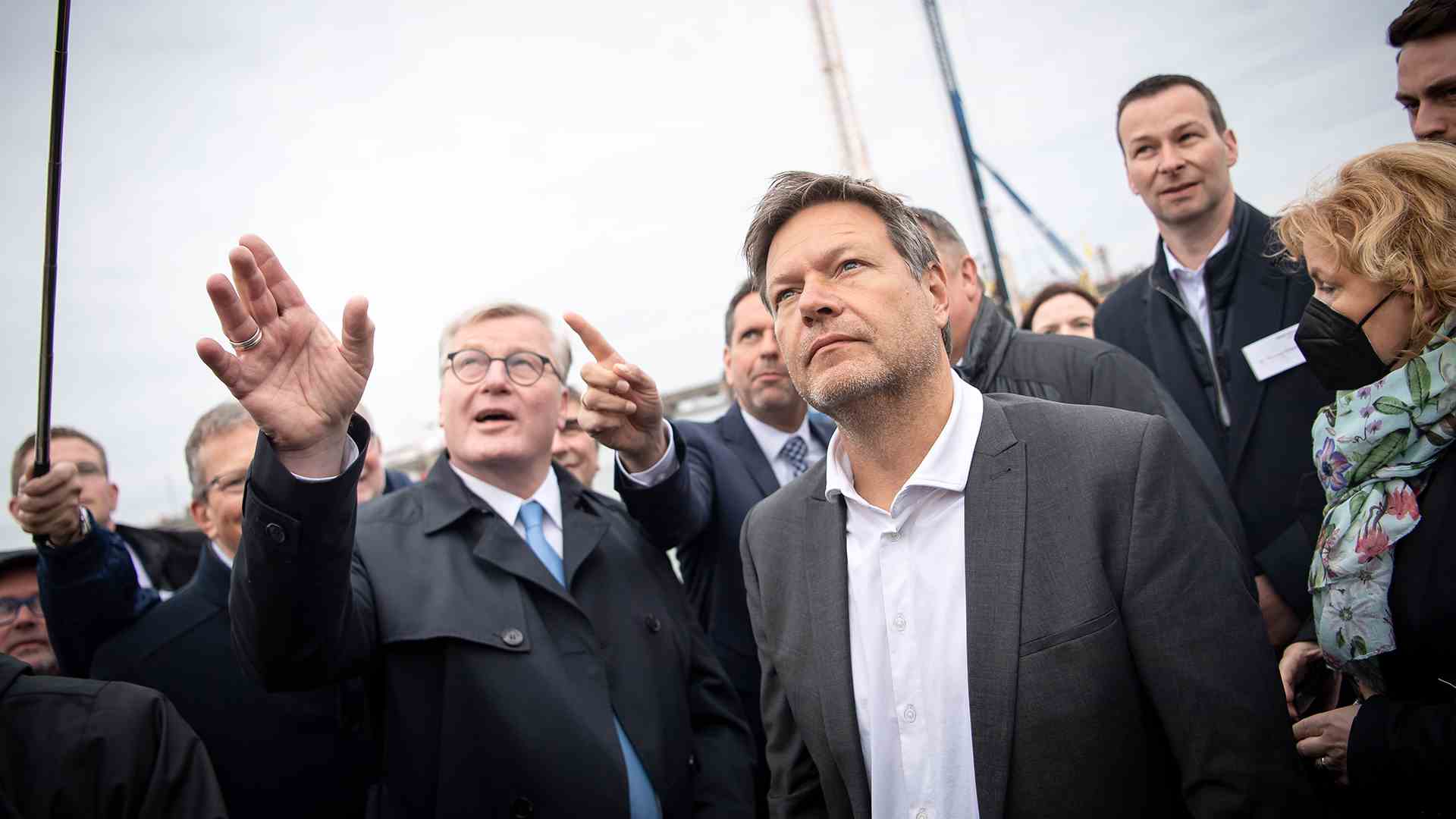Status: 05/19/2022 03:58 a.m
Economics Minister Habeck wants to set up liquid gas terminals in record time with the “LNG Acceleration Act”. That’s a dilemma for the Greens – or is it?
Economics and Climate Protection Minister Robert Habeck from the Greens is in a dilemma. On the one hand, he wants Germany to get alternatives to Russian natural gas as quickly as possible. On the other hand, porpoises are also important to him, as he recently confessed. “I love porpoises,” he said in an interview with RTL. He comes from the coast and is therefore “probably the biggest porpoise fan in the federal government”.
But at the moment, Habeck is primarily concerned with building liquid gas terminals on the German coast in record time. Initial preliminary work in Wilhelmshaven has already begun.
Habeck was at the so-called first ramming on site. And with the “LNG Acceleration Act”, which the Bundestag is likely to pass today, work at several possible locations should now progress even faster. This means greatly reduced deadlines for public participation, and the environmental impact assessments are to be carried out using significantly simplified procedures.
Criticism of environmental organizations
This is where the porpoises come into play. Environmental groups fear that the animals will be endangered by the construction of the liquefied gas terminals, which makes extensive testing necessary. And: The draft law puts basic participation options in question, criticizes the managing director of Deutsche Umwelthilfe Sascha Müller-Kraenner.
From the point of view of environmental aid, it is particularly problematic that rights that have been fought for decades are completely abolished or reduced. “This is reduced to an absolute minimum. And as a result, the process naturally loses quality,” says Müller-Kraenner. This means that in the end the only way to go is to take legal action.
filed an objection
So far, environmental aid has only lodged an initial objection to the project in Wilhelmshaven and requested access to the files, but has not yet announced any lawsuits. Nevertheless, Habeck is already warning of the possible consequences. “Environmental aid, don’t do it. If in doubt, your lawsuit will make us extremely dependent on Putin. You shouldn’t do that at this point.”
The “LNG Acceleration Act” refers explicitly to the planned liquefied gas terminals, to the impending supply emergency if Germany has to do without Russian gas. It is about the possibility of building a total of eleven LNG plants – both as floating terminals and as fixed port facilities, the construction of which is more complex and time-consuming.
Six ports are mentioned in the draft law as conceivable locations: Brunsbüttel, Wilhelmshaven, Stade, Hamburg, Rostock and Lubmin. The law, which was drafted quickly, therefore relates to specific projects that were more or less born out of necessity as a result of the Russian war of aggression in Ukraine.
Transferrable to other projects?
But the law also stands for a fundamental goal of the governing parties SPD, Greens and FDP – namely to significantly accelerate planning and approval processes for infrastructure projects. FDP parliamentary group leader Christian Dürr considers the law “virtually a blueprint”.
It is about accelerating planning in Germany as a whole. “We will examine to what extent we can apply this to other major projects,” says Dürr. The FDP parliamentary group leader cites projects for decarbonization as well as for the digitization of the country as examples.
Habeck’s dilemma
And the Greens are urging the expansion of wind farms, which are unpopular with many citizens, to be accelerated. In return, they are to be ascribed an outstanding public interest by law, which means that objections and lawsuits against them are likely to be less promising. This legal construct is a central component of the so-called Easter package from Economics Minister Habeck, with which renewable energies are to be expanded much faster.
It is therefore questionable whether Habeck is so unhappy about the dilemma he is in – between the liquid gas terminal and the porpoise. The war in Ukraine and the problems with the energy supply could accelerate many projects in this country that would have been long and hard fought until recently.

